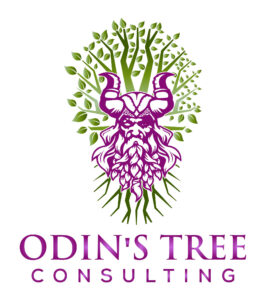In the dynamic and ever-evolving business landscape, organizations of all sizes are constantly striving to stay ahead of the curve. One of the key ingredients for achieving sustainable success is effective organizational development. Whether it’s a small startup or a multinational corporation, implementing a well-structured and robust organizational development strategy can have a profound impact on the overall performance, growth, and longevity of an organization. In this article, we will explore why effective organizational development is crucial, regardless of the organization’s size.
Understanding Organizational Development:
Organizational Development is a strategic process that involves planned interventions aimed at improving an organization’s overall effectiveness. It encompasses a range of initiatives, including structural changes, cultural transformations, leadership development, and employee training. The primary objective of OD is to align the organization’s systems, processes, and people with its strategic goals, resulting in enhanced performance and sustainable success.
Key Components of Organizational Development:
- Strategic Planning: OD starts by defining the organization’s mission, vision, and strategic objectives. This step ensures that all subsequent interventions are aligned with the company’s long-term goals, driving collective focus and clarity.
- Organizational Culture: Culture plays a vital role in shaping an organization’s identity and driving its performance. OD focuses on cultivating a positive and high-performing culture that promotes collaboration, innovation, and employee satisfaction.
- Leadership Development: Effective leadership is crucial for driving organizational change and inspiring employees. OD programs help identify and develop future leaders, equipping them with the skills and knowledge to lead teams and drive growth.
- Employee Engagement: Engaged employees are more committed, productive, and innovative. OD initiatives foster a supportive work environment, encourage open communication, and provide opportunities for professional growth, resulting in increased employee satisfaction and retention.
- Change Management: Change is inevitable in any organization. OD provides frameworks and tools to manage change effectively, reducing resistance and ensuring a smooth transition.
Benefits of Organizational Development:
- Increased Productivity: An optimized organizational structure, streamlined processes, and a motivated workforce contribute to improved productivity and operational excellence.
- Enhanced Employee Satisfaction: OD focuses on creating a positive work environment that values and supports employees. This leads to increased job satisfaction, higher morale, and reduced turnover.
- Improved Communication and Collaboration: OD interventions foster open communication channels, encourage teamwork, and break down silos, leading to enhanced collaboration and innovation.
- Adaptability and Resilience: Through OD, organizations become more adaptable and resilient in the face of market disruptions or industry shifts, ensuring long-term sustainability.
- Competitive Advantage: By aligning systems, processes, and people with strategic goals, OD helps organizations gain a competitive edge by becoming more agile, customer-centric, and responsive to market demands.
With an understanding of what OD is, we can see the benefits of a successful OD initiative.
- Enhancing Employee Engagement and Productivity:
Organizational development plays a pivotal role in fostering a positive work environment and promoting employee engagement. By focusing on talent management, leadership development, and cultivating a culture of continuous learning, organizations can empower their employees to reach their full potential. Engaged employees are more committed, motivated, and productive, leading to increased efficiency, innovation, and overall performance.
- Nurturing a Culture of Adaptability and Change:
In today’s fast-paced business world, organizations must be agile and adaptable to stay competitive. Effective organizational development enables organizations to embrace change and navigate through challenging times. By fostering a culture that values innovation, encourages open communication, and promotes collaboration, organizations can create an environment where employees are more receptive to change and better equipped to adapt to new strategies, technologies, and market trends.
- Building Effective Leadership:
Every successful organization needs strong leadership to guide its direction and inspire its workforce. Organizational development focuses on identifying and developing leadership potential within the organization. By investing in leadership development programs, organizations can cultivate a pipeline of competent leaders who possess the necessary skills, knowledge, and vision to drive the organization towards its goals. Effective leaders foster trust, inspire their teams, and create a positive work culture that encourages growth and innovation.
- Maximizing Talent Acquisition and Retention:
Organizations that prioritize effective organizational development are more likely to attract and retain top talent. A well-structured development strategy demonstrates an organization’s commitment to investing in its employees’ growth and career advancement. This attracts ambitious individuals who are eager to learn and develop their skills. Furthermore, providing opportunities for progression and creating a culture that rewards and recognizes talent will significantly reduce turnover rates and build a loyal and committed workforce.
- Improving Organizational Performance and Results:
Ultimately, effective organizational development aims to improve overall organizational performance and achieve desired results. By aligning individual goals with organizational objectives, organizations can create a sense of purpose and direction throughout the workforce. This alignment leads to increased focus, collaboration, and accountability, resulting in improved efficiency, productivity, and profitability.
In our rapidly evolving business landscape, organizations cannot afford to overlook the importance of effective organizational development. Regardless of the organization’s size, investing in developing talent, fostering a culture of adaptability, nurturing effective leadership, attracting and retaining top talent, and driving overall performance are the keys to long-term success. By embracing organizational development, organizations can transform themselves into agile, innovative, and high-performing entities ready to tackle any challenge that comes their way.




